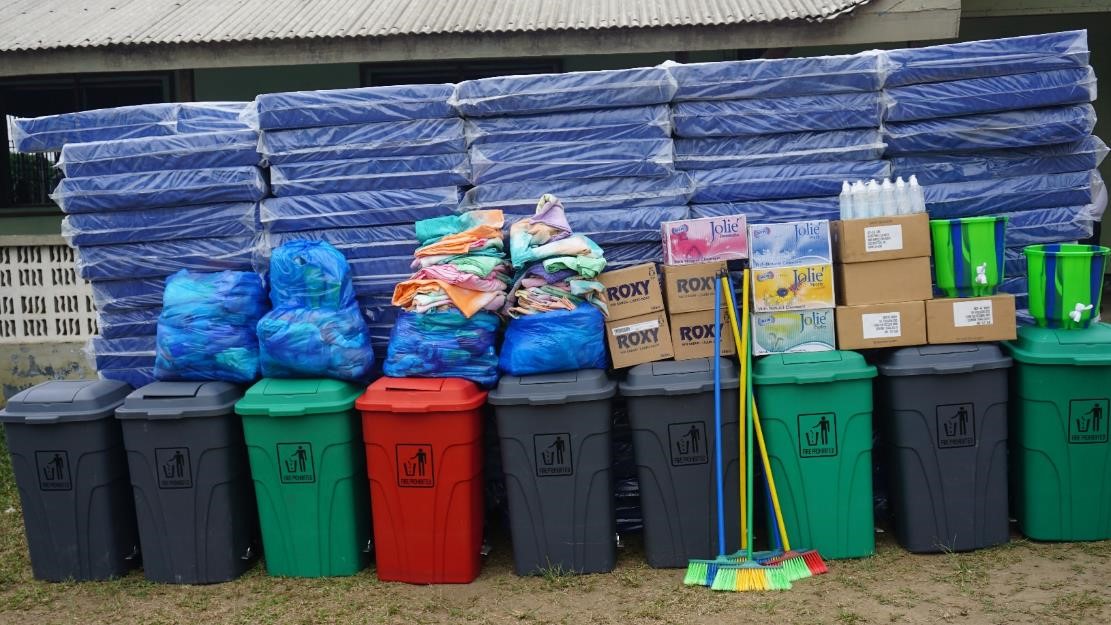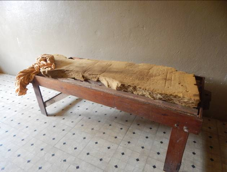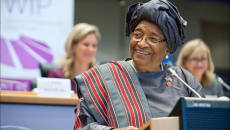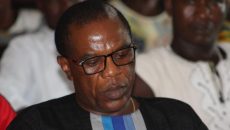PAYNESVILLE, Montserrado – The World Health Organization has donated several materials to the Edward Snoh Grant Mental Hospital to help boost the hospital’s ability to address mental health issues in the country.
The donation, made through WHO’s representative to Liberia, Dr. Alex Gasasira, was presented at a program marking World Health Day.
Appropriately, this year’s World Health Day celebration focused on the theme of depression. The hospital, which was built to cater to 80 metal health patients, now cares for 75 due to significant challenges it faces, including the lack of sufficient mattresses.
The materials donated included 70 mattresses, 100 bed sheets, ten garbage cans, five brooms, four cartons of bathing soap, and 48 packs of hand sanitizer.
Making the presentation to the hospital’s administrator, Gasasira noted that the organization made the donation because WHO staff members were alarmed about the appalling conditions during a recent tour of the facility.
He delivered a message on behalf of Dr. Matshidiso Moeti, WHO’s regional director for Africa, where he noted that about 322 million people around the world are affected by depression.
“Depression is the leading cause of disability worldwide and a major contributor to the overall global burden of disease,†Gasasira said.
By talking about depression, Gasasira said it is easier to break down the stigmas associated with it and other mental illnesses.
“There is an urgent need to… treat those affected by this serious and complex mental health condition,†the WHO representative said.
He drew attention to the scarcity of resources to identify, prevent and treat mental health problems such as depression, saying, “The lack of availability of psychotropic medicines, proper information, coupled with well-structured psychotherapy and other effective measures for primary healthcare services to treat depression, is a cause of concern.â€
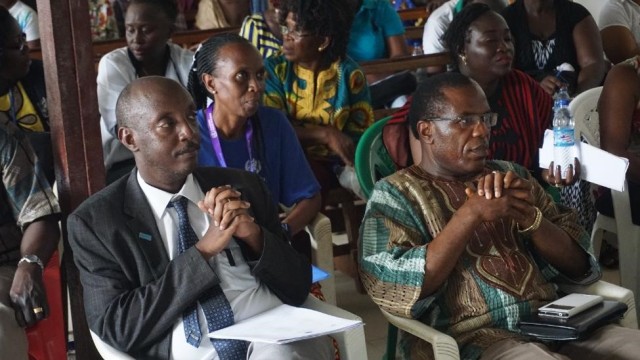
(L-R) Dr. Alex Gasasira, WHO’s representative to Liberia, and Dr. Francis Kateh, Liberia’s chief medical officer. Photo: Zeze Ballah
Liberia’s chief medical officer, Dr. Francis Kateh, who represented Health Minister Bernice Dahn at the program, said he was excited about WHO’s decision to prioritize depression during this year’s celebration.
Kateh said the civil war and the Ebola crisis have caused a peak in depression in Liberia. Though he did not provide any figures, he noted that many Liberians at a particular stage in their life have gone through some level of depression.
“We need to be our brother’s keeper at all times,†he said, adding that Liberians should not wait for depression to happen to them before it grabs their attention.
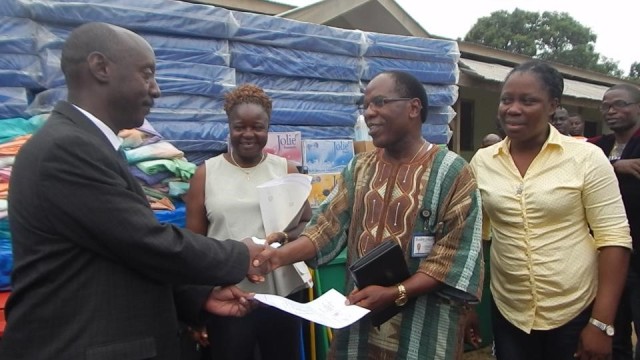
(L-R) Dr. Alex Gasasira and Dr. Francis Kateh shake hands, while Mamuyan M. Cooper (Middle) and Angie Tarr Nyakoon look on. Photo: Zeze Ballah
Mamuyan M. Cooper, the head of the E. S. Grant facility, thanked WHO for the donation and promised to use the materials for the intended purpose.
In 1999, the facility was opened and referred to as a mental health hospital. It was later turned over to the Liberian government to run in 2001.
Cap Anamur, also known as German Emergency Doctors, took charge of the facility from the government in 2006 until 2010, when the government resumed operating the facility.
Featured photo by Zeze Ballah
